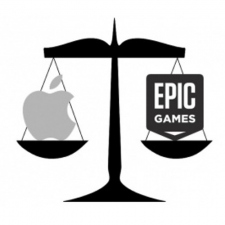Apple and Epic Games have both separately issued court filings challenging the ruling in their long-standing legal battle, reports Reuters.
The companies first locked heads in 2020, when Epic attempted to circumvent Apple’s App Store fees by offering discounted V-Bucks - the in-game currency used in Fortnite - directly on its own site. This led to Apple removing the title from the App Store, and Epic suing the tech giant as a result. In a legal filing, Apple claimed that Epic was acting in bad faith, and had deliberately attempted to cheat it after being denied a special deal. In September of 2020, Apple filed its own counterclaim, asking courts to force Epic to reimburse it for financial losses that came as a result of its move.
The courts eventually ordered Apple to allow developers to implement other forms of payment outside of those offered by the App Store, despite finding in its favour in nine out of ten claims. Epic appealed this decision, and despite Apple’s attempts to have the appeal dismissed the two companies went to court again in April of this year.
Echoing the previous ruling, the court found in Apple’s favour in nine out of ten cases, but once again ordered it to allow developers to accept payments outside of the App Store ecosystem.
What happens now?
Both companies have requested that the case, originally heard by a three judge panel of the 9th U.S. Circuit Court of Appeals in San Francisco, should be reheard or that the court should convene en banc, with all 11 judges in the court convening to reconsider the ruling.
April’s ruling found that while Apple violated California law, it didn’t violate nationwide antitrust provisions. In its filing, Apple challenges a nationwide injunction over conduct which it says is “procompetitive and does not violate antitrust law.”
For its part, Epic is arguing that its claims directly implicate American antitrust law, and that the appeals court didn’t properly balance between asserted consumer benefits and alleged anticompetitive action on Apple’s part.
Both companies notably have significant motives to gain a decisive victory in the case. Despite the court finding in Apple’s case in the majority of claims, forcing the company to allow third-party payments may well be the most important. After all, Fortnite has proven to be a massive hit, and Apple were eager enough for a larger piece of the proverbial pie to attempt to force Epic to reimburse it for its losses after it initially tried to sidestep its rulings.
Perhaps more importantly, the move sets a precedent that the company may wish to avoid, with more and more companies attempting to have their cake and eat it too, utilising the App Store ecosystem to maximise reach while offering players the chance to make the same in-app purchases for a lower cost.
As for Epic, it won one victory in a larger suit and, as important as that victory was, it still arguably puts the company on the backfoot. A more decisive victory could help the company assert its place in the market while making it easier for other companies to follow suit.
Last week, Apple updated its privacy policies in what has been called “the destroyer of fingerprinting.”






















